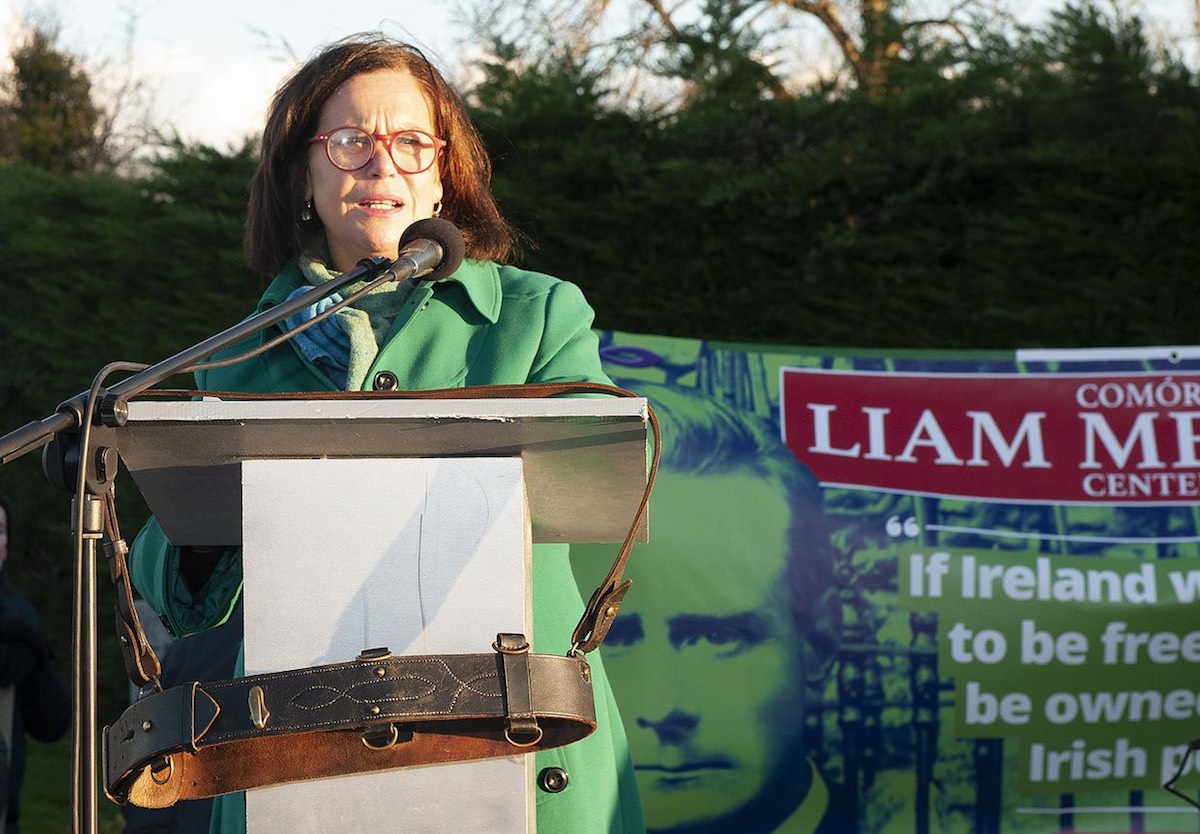
Several republican groups and societies have marked the centenary of the summary execution by Free State forces of Liam Mellows and three other prominent IRA figures who died as martyrs for the Republic.
All four -- Mellows, Rory O’Connor, Joe McKelvey and Dick Barrett -- had fought in the War of Independence and had been taken captive in July, 1922 by pro-Treaty forces following the battle of the Four Courts in Dublin.
On December 8, 1922, they were wakened in their cells in the very early hours of the morning and informed they were to be executed in reprisal for the shooting dead of pro-Treaty TD Séan Hales the previous day.
The Hales family would subsequently denounce the murder of the four men and stated that it did not have their support.
The decision to execute the four men was made by the Free State military leadership, including ‘Minister for Justice’ Kevin O’Higgins, for whom Rory O’Connor acted as best man the previous year. O’Higgins simply said “Take them out and shoot them.”
The four were carefully selected, one from each of the Irish provinces, and were considered the biggest threats to the power of the pro-Treaty forces.
The largest commemoration took place this year in Castletown, County Wexford, where Liam Mellows is buried, and was organised by Sinn Féin. Hundreds marched from the crossroads in the town centre to the graveside of Liam Mellows, carrying banners and accompanied by a pipe band.
Party leader Mary Lou McDonald told those gathered that a new government could pave the way for Mellows’ vision for Ireland to be realised.
“The yard in Mountjoy Gaol is sacred ground,” she said.
“A century on, its walls reverberate still with the echo of the shots fired by the Free State soldiers that ended the lives of four Irish patriots; four volunteers who bravely stood by the republic. In the early hours of December 8th, 1922 – Joe McKelvey, Rory O’Connor, Dick Barrett and Liam Mellows were woken from their cells and told that were to be executed.
“There would be no trial, no pleas, no pretence of legality. The Free State Government openly described its execution order as one of reprisal for the killing of Seán Hales TD the day before.
“They were not the first republicans to be executed by the Free State, nor would they be the last.”
Ms McDonald spoke of the influence that James Connolly had on Mellows following several meetings the pair had at the home of a fellow rebel leader, Countess Markiewicz.
“It was Connolly’s socialist vision that Mellows held so tightly up until his dying moments in Mountjoy,” she said.
“He longed, not only for the national independence of Ireland, but also for the economic liberation of its people.”
Meanwhile, in Galway, Eirigi held a black flag vigil to mark the centenary at the Mellows statue in Eyre Square.
Local Éirígí representative Ian Ó Dálaigh said the executions represented “one of the most cynical acts of brutality carried out by Free State forces during the Irish counter-revolution - which is more often, and less accurately, referred to as the Irish civil war.
“These executions were justified as a ‘reprisal’ for the killing of Pro-Treaty Cork TD, Seán Hales, the previous day. But the truth is that these men were singled out because they were some of the most effective leaders of the anti-treaty Republican forces.
“Not only that, but in executing a significant leader from each province, the pro-treaty Free State forces were sending a message that would reverberate across the entire country.
“The Four Martyrs - and many others like them - stood by the Republican vision that was laid out in the 1916 Proclamation and 1919 Democratic Programme, but unfortunately the counter-revolutionary forces were successful and the Republic was crushed in a brutal counter-revolution.”
Lasair Dhearg also held a commemoration in Milltown Cemetery, Belfast, to mark the centenary, where a wreath was laid at the grave of Joe McKelvey.
Former Blanketman Pádraic MacCoitir told those gathered that Britain recognised ahead of the Treaty negotiations that the best way of securing its interests in Ireland would be by conservative middle-class Irish nationalists realising that Britain would defend their interests too.
“The two states on this island which were created through the Treaty and partition were, and still remain, hostile to the interests of Irish workers and have acted against the struggles of Irish workers time and time again,” he said.
“That was not the kind of future which Mellows, McKelvey and their comrades had envisaged. They knew only too well that partition would lead to the carnival of reaction envisaged by Connolly, and that carnival of reaction has been in full flow in recent years. The Ireland of today remains controlled by imperialism, all be it in a new and more subtle form.
“The objectives to which Mellows, McKelvey, Barrett and O’Connor and many others pledged their allegiance; the objectives for which they gave their lives are the same objectives which were clearly and unmistakably demanded through the 1916 Proclamation and the Democratic Programme of 1919. Those objectives have not been achieved.
“Settling for anything less than the complete achievement of those Republican objectives was not an option for those who we remember and honour today.”
![[Irish Republican News]](https://republican-news.org/graphics/title_gifs/rn.gif)
![[Irish Republican News]](https://republican-news.org/graphics/title_gifs/harp.gif)

